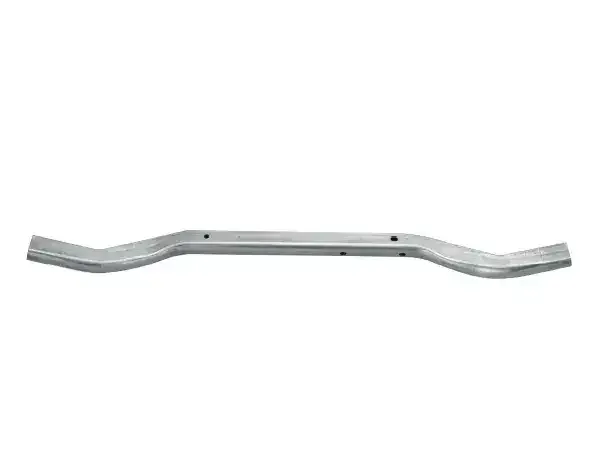Precision Round Tubes Made from Mild Steel for Various Industrial Applications and Custom Solutions
Jul . 25, 2024 04:35
Mild Steel Precision Round Tube A Versatile Solution for Structural Applications
Mild steel, known for its ductility, malleability, and strength, is a popular choice in the construction and manufacturing industries. One of its most notable forms is the precision round tube, which has gained significant recognition for its versatile applications and longevity. This article explores the characteristics, benefits, and common uses of mild steel precision round tubes in various industries.
Understanding Mild Steel Precision Round Tubes
Mild steel, also referred to as low carbon steel, typically contains a carbon content of 0.05% to 0.25%. This low carbon content makes it easier to work with, yielding high weldability and formability. Precision round tubes, on the other hand, are manufactured to stringent dimensional tolerances. The term precision signifies that these tubes have been produced with a high degree of accuracy, which is critical in applications requiring exact specifications.
The manufacturing process usually involves cold drawn techniques that enhance the dimensional precision and surface finish of the tube. The resulting product exhibits superior mechanical properties, such as tensile strength and yield strength, making it an ideal candidate for various engineering applications.
Advantages of Mild Steel Precision Round Tubes
One of the primary advantages of mild steel precision round tubes is their strength-to-weight ratio. This attribute allows engineers and designers to create robust structures without compromising on weight. Additionally, mild steel's inherent ductility permits it to withstand significant deformation without fracturing, making it less susceptible to failure under stress.
Another key benefit is cost-effectiveness. Mild steel is one of the most affordable materials available, providing a budget-friendly option for large-scale projects. Its availability in various sizes and thicknesses further ensures that there is a suitable option for almost any application.
mild steel precision round tube
Moreover, mild steel precision round tubes are highly adaptable. They can be easily cut, welded, and machined, providing design flexibility that is often required in custom applications. With proper surface treatment, these tubes can also exhibit enhanced resistance to corrosion, thus extending their service life.
Applications of Mild Steel Precision Round Tubes
Mild steel precision round tubes find extensive applications across a variety of industries. In the construction sector, they are commonly used in frameworks, scaffolding, and handrails, where strength and reliability are paramount. Their precision dimensions also lend themselves well to architectural applications, where aesthetic appeal and accuracy play vital roles.
In the automotive industry, these tubes are often employed in the manufacturing of chassis and structural components, owing to their ability to endure heavy loads while maintaining structural integrity. The furniture industry also benefits from mild steel precision round tubes, which are frequently used in the production of modern and minimalist designs.
Furthermore, in the aerospace and defense sectors, precision round tubes serve critical functions in fittings and structural elements. Their ability to maintain dimensional accuracy under various loads makes them indispensable in applications where safety is crucial.
Conclusion
Mild steel precision round tubes represent a blend of strength, versatility, and cost-effectiveness, making them a preferred material in multiple industries. Their ability to meet stringent specifications while providing reliability and durability positions them as an essential component in modern engineering and manufacturing solutions. As industries continue to evolve and emphasize precision, the role of mild steel precision round tubes will likely expand, highlighting their enduring importance in structural applications.
 Afrikaans
Afrikaans  Albanian
Albanian  Amharic
Amharic  Arabic
Arabic  Armenian
Armenian  Azerbaijani
Azerbaijani  Basque
Basque  Belarusian
Belarusian  Bengali
Bengali  Bosnian
Bosnian  Bulgarian
Bulgarian  Catalan
Catalan  Cebuano
Cebuano  Corsican
Corsican  Croatian
Croatian  Czech
Czech  Danish
Danish  Dutch
Dutch  English
English  Esperanto
Esperanto  Estonian
Estonian  Finnish
Finnish  French
French  Frisian
Frisian  Galician
Galician  Georgian
Georgian  German
German  Greek
Greek  Gujarati
Gujarati  Haitian Creole
Haitian Creole  hausa
hausa  hawaiian
hawaiian  Hebrew
Hebrew  Hindi
Hindi  Miao
Miao  Hungarian
Hungarian  Icelandic
Icelandic  igbo
igbo  Indonesian
Indonesian  irish
irish  Italian
Italian  Japanese
Japanese  Javanese
Javanese  Kannada
Kannada  kazakh
kazakh  Khmer
Khmer  Rwandese
Rwandese  Korean
Korean  Kurdish
Kurdish  Kyrgyz
Kyrgyz  Lao
Lao  Latin
Latin  Latvian
Latvian  Lithuanian
Lithuanian  Luxembourgish
Luxembourgish  Macedonian
Macedonian  Malgashi
Malgashi  Malay
Malay  Malayalam
Malayalam  Maltese
Maltese  Maori
Maori  Marathi
Marathi  Mongolian
Mongolian  Myanmar
Myanmar  Nepali
Nepali  Norwegian
Norwegian  Norwegian
Norwegian  Occitan
Occitan  Pashto
Pashto  Persian
Persian  Polish
Polish  Portuguese
Portuguese  Punjabi
Punjabi  Romanian
Romanian  Samoan
Samoan  Scottish Gaelic
Scottish Gaelic  Serbian
Serbian  Sesotho
Sesotho  Shona
Shona  Sindhi
Sindhi  Sinhala
Sinhala  Slovak
Slovak  Slovenian
Slovenian  Somali
Somali  Spanish
Spanish  Sundanese
Sundanese  Swahili
Swahili  Swedish
Swedish  Tagalog
Tagalog  Tajik
Tajik  Tamil
Tamil  Tatar
Tatar  Telugu
Telugu  Thai
Thai  Turkish
Turkish  Turkmen
Turkmen  Ukrainian
Ukrainian  Urdu
Urdu  Uighur
Uighur  Uzbek
Uzbek  Vietnamese
Vietnamese  Welsh
Welsh  Bantu
Bantu  Yiddish
Yiddish  Yoruba
Yoruba  Zulu
Zulu 












